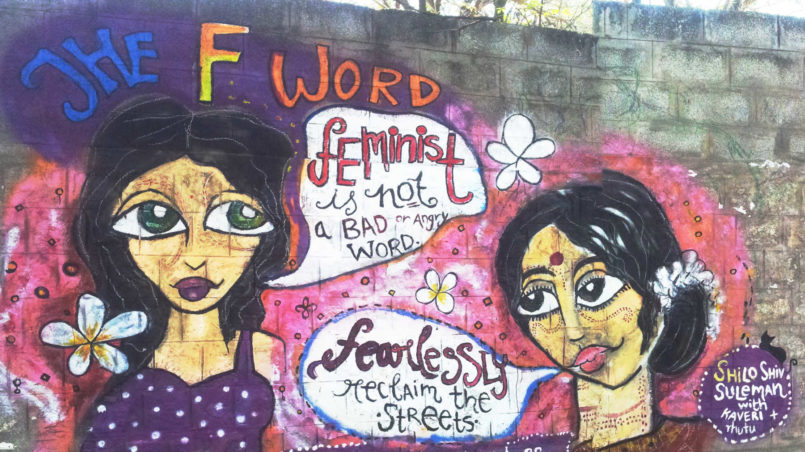An Unacknowledged Aberration

Numerous traditions in many parts of the Indian subcontinent are vividly incongruous with the existing social conditions. However, such a phenomenon is not unique to any particular region of the world. In fact, inconsistency between exalted traditions in any society and the prevailing social conditions in that particular society is a very common phenomenon. But at times incongruities become very evident in some societies and thus need to be reviewed. In this article, I would like to bring to notice the striking incongruity that exists in India and some of its neighboring countries like Nepal.
Patriarchy is a global phenomenon and it is prevalent in different parts of the world in different forms and to varying degrees. Similarly, Indian society is also patriarchal and has perpetuated the oppression of women in different forms and degrees in different periods of history.
I have never been able to come to terms with such a paradoxical pattern of thinking. When I was growing up, I witnessed how badly men treated women in daily life. And what I am talking about is not just the outright oppression of women but the subtle way of treating women as inferior to men in every aspect. Moreover, not all men are oppressive by nature. They do take care of the women in their families, and they provide the best for their women. I come from one of the north eastern states of India, which has a relatively good record in terms of the treatment of women. But to be very honest, such a good record is just relative to other parts of India, where men believe they have the right to dictate the lives of the women in their family.
In the region, as well as in the society where I grew up, women are not powerless or completely controlled by the men in their families. They have better opportunities in terms of freedom and agency. Education is not viewed as a male prerogative, and the awful custom of providing a dowry is not usual. Many social evils related to gender oppression, which are profound in many other parts of India, are either non-existent or comparatively less intense in nature. However, patriarchy is not only about the explicit oppression of women and terrible social evils carried out against women.
The north eastern region of India in which I was born is viewed as liberal and many consider that it fares well in terms of the treatment of women. However, my experience, if not contrary to such an understanding, is however perforated. It was usual to treat women in a way which was disparaging if not outright demeaning.
What intrigues me most is the tradition of worshiping goddesses as a source of wisdom and power while, at the same time, believing that women are usually unintelligent and incapable of achieving or doing what men can. And such beliefs are so entrenched that a woman who succeeds in achieving something that society deems important is “complimented” by being considered unlike other women and more like a man. I find such notions very disturbing and I cannot comprehend how women fail to see the logic.
Festivals like “Durga Puja”, “Lakshmi Puja”, “Kali Puja”, Saraswati Puja”, “Navratri” etc. are all about worshiping and pleasing goddesses. I grew up celebrating such festivals without realizing the hypocrisy that pervades the whole phenomenon. On the one hand, both men and women worship a female deity as a source of power and wisdom and, on the other hand, both men and women look down on women as lacking and inferior to men.
Goddess Saraswati is regarded the goddess of learning, music and art and epitomizes creative energy and power and wisdom in all its forms. But in this part of the world, where knowledge is linked with a goddess, the mentality that education is a privilege for women seems extremely hypocritical. Many families from rural India still believe that educating women is worthless, as their primary role is to look after the household and thus should be trained in household activities.
Many women around me used to claim that men and women are equal in every respect, and they do not believe in men’s superiority over women. But I came to see that such claims were never translated into action as the customs which women follow and many traditions they eulogize are nothing more than an outright manifestation of acquiescing to a patriarchal mentality.
My experiences with such contradictions that exist in Indian society became increasingly harrowing when I started to travel and see other parts of India where such contradictions were more obvious. Goddesses are worshipped and rituals followed much more strictly, and paradoxically, women are treated in quite a derogatory manner in such communities.
Credits
| Image | Title | Author | License |
|---|---|---|---|
 |
Bangalore_Graffiti_(8599590814) | Ashwin Kumar | CC BY-SA 2.0 |

Very good article Sumana, indeed at the time when the Vedas were written, the role of the women was put down in a very different way in comparison to today!